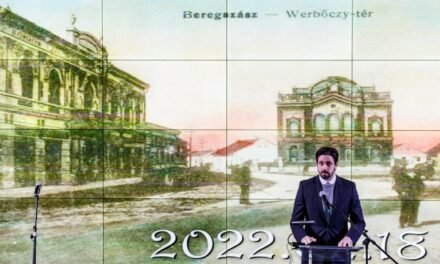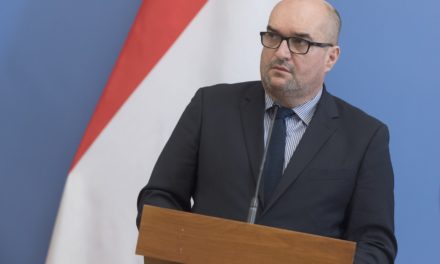Although the Slovak government has approved the amendment of the education law, the purpose of which is to introduce the concept of minority schools, according to experts, no significant progress is being made in minority education.
Minister of Education Branislav Gröhling (SaS) (in our picture) emphasized that it was a historic moment, as "we have taken the first step in the direction of school reform". The issue of ethnic education was also discussed, the proposal of the Education Act uses the concept of ethnic schools for the first time in the history of Slovakia.
"It is an old request of the minorities that the concept of minority schools be established by law.
I consider it positive that this definition is happening. On the other hand, every definition is only worth as much as it can be put behind it," Ábel Ravasz, former government commissioner for Roma affairs and head of the Bél Mátyás Institute, shared with Újszó. He added that he agreed with the criticism that had already been expressed by representatives of the profession. "Despite the fact that the concept of ethnic schools is being defined, this does not mean any practical advantage for the schools involved.
There is no financial or support source attached to it. In the future, it will be a challenge for those who fall into this definition to receive some kind of discount," says Ravasz. The Hungarian pedagogical organizations in Slovakia were actively involved in commenting on the proposal - the ministry did not involve them in the development of the draft, so they could only have a say in the content of the amendment through this channel. Among other things, they objected to the fact that institutions where all subjects are taught (with the exception of a foreign language) in the language of the minority were included in the category of minority schools. This is primarily disadvantageous from the point of view of the Roma, Ruthenian and German minorities, since the teaching of the minority language is present in these schools, but according to the definition, they are not considered a nationality school.
"I don't consider this to be a good solution, these schools actually end up in a strange situation. On the one hand, they have some kind of minority education, and on the other hand, the law clearly does not classify them in the category of ethnic schools," continued the head of the institute, then reminded that the final text of the law must be waited for the time being, as even the parliament has to give its nod to the proposal.
By the way, the reform promises many changes. The ministry would tie the acquisition of a basic school education to the successful completion of a central survey known as Test 9. Only those students who score at least 20% on the test would be admitted to high school. However, the outline of the proposal did not take into account the assessment of the level of Hungarian language and literature.
The Comenius Pedagogical Institute and the Association of Hungarian Teachers of Slovakia pointed out that the ministry had forgotten about the Hungarian language. The state secretary stated that this issue was already resolved in the first stage of the constructive and transparent opinion process. "For the second round of commenting, we eliminated these small technical issues," he added.
Image: Újszó.com












